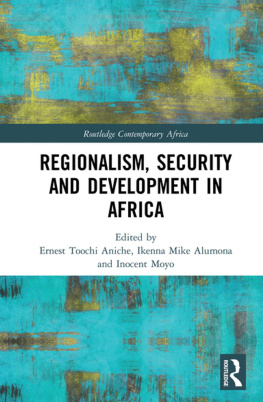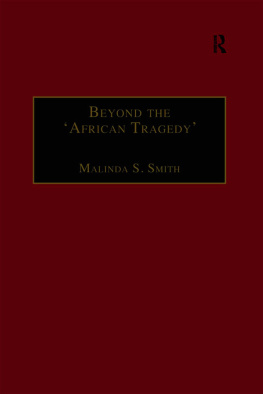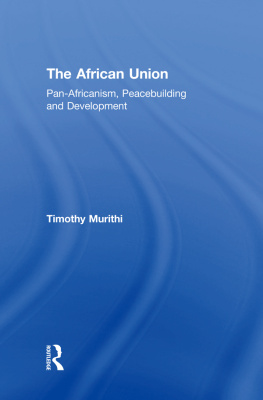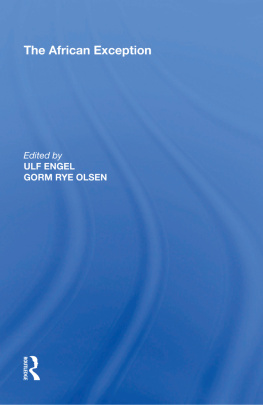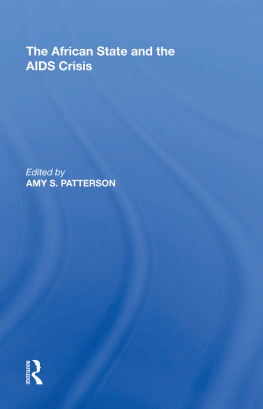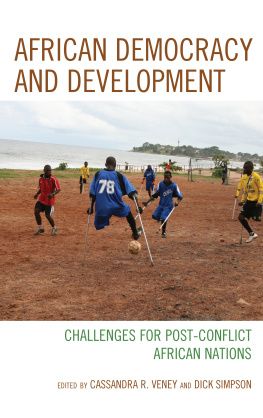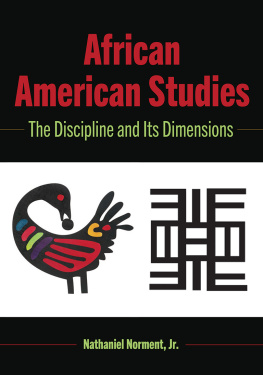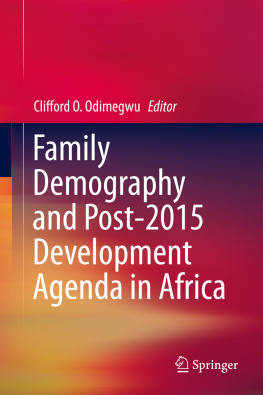
African Environmental Crisis
This book explores how and why the idea of the African environmental crisis developed and persisted through colonial and post-colonial periods, and why it has been so influential in development discourse. From the beginnings of imperial administration, the idea of the desiccation of African environments grew in popularity, but this crisis discourse was dominated by the imposition of imperial scientific knowledge, neglecting indigenous knowledge and experience.
African Environmental Crisis provides a synthesis of more than one-and-a-half centurys research on peasant agriculture and pastoral rangeland development in terms of soil erosion control, animal husbandry, grazing schemes, large-scale agricultural schemes, social and administrative science research, and vector-disease and pest controls. Drawing on comparative socio-ecological perspectives of African peoples across the East African colonies and post-independent states, this book refutes the hypothesis that African peoples were responsible for environmental degradation. Instead, Gufu Oba argues that flawed imperial assumptions and short-term research projects generated an inaccurate view of the environment in Africa.
This books discussion of the history of science for development provides researchers across environmental studies, agronomy, African history and development studies with a lens through which to understand the underlying assumptions behind development projects in Africa.
Gufu Oba is professor at the Faculty of Landscape and Society (LANDSAM) in the Norwegian University of Life Sciences. His work is interdisciplinary; combining natural sciences, pastoralism and environmental history. His previous books include; Nomads in the shadows of empires (2013), Climate change adaptation in Africa (2014) and Herder warfare in East Africa (2017).
Routledge Studies in African Development
Peacebuilding in Contemporary Africa
In Search of Alternative Strategies
Edited by Kenneth Omeje
The Challenge of Governance in South Sudan
Corruption, Peacebuilding, and Foreign Intervention
Edited by Steven C. Roach and Derrick K. Hudson
African Peacekeeping Training Centres
Socialisation as a Tool for Peace?
Anne Flaspler
Corporate Governance in Tanzania
Ethics and Accountability at the Crossroads
Peter C. Mhando
Economic Dualism in Zimbabwe
From Colonial Rhodesia to Post-Independence
Daniel B. Ndlela
Rethinking Ownership of Development in Africa
T.D. Harper-Shipman
African Environmental Crisis
A History of Science for Development
Gufu Oba
Development in Nigeria
Promise on Hold?
Edlyne Eze Anugwom
African Environmental Crisis
A History of Science for Development
Gufu Oba
First published 2020
by Routledge
2 Park Square, Milton Park, Abingdon, Oxon OX14 4RN
and by Routledge
52 Vanderbilt Avenue, New York, NY 10017
Routledge is an imprint of the Taylor & Francis Group, an informa business
2020 Gufu Oba
The right of Gufu Oba to be identified as author of this work has been asserted by him in accordance with sections 77 and 78 of the Copyright, Designs and Patents Act 1988.
All rights reserved. No part of this book may be reprinted or reproduced or utilized in any form or by any electronic, mechanical, or other means, now known or hereafter invented, including photocopying and recording, or in any information storage or retrieval system, without permission in writing from the publishers.
Trademark notice: Product or corporate names may be trademarks or registered trademarks, and are used only for identification and explanation without intent to infringe.
British Library Cataloguing-in-Publication Data
A catalogue record for this book is available from the British Library
Library of Congress Cataloging-in-Publication Data
Names: Oba, Gufu, author.
Title: African environmental crisis : a history of science for development / Gufu Oba.
Other titles: Routledge studies in African development.
Description: New York : Routledge, 2020. |
Series: Routledge studies in African development | Includes bibliographical references and index. |
Identifiers: LCCN 2019056931 (print) | LCCN 2019056932 (ebook) | ISBN 9780367432614 (hardback) | ISBN 9781003002161 (ebook)
Subjects: LCSH: Economic developmentEnvironmental aspectsAfrica. | ScienceAfricaHistory. | Land use, RuralAfricaHistory. | AfricaEnvironmental conditionsResearchHistory.
Classification: LCC GE160.A35 O34 2020 (print) | LCC GE160.A35 (ebook) | DDC 333.72096dc23
LC record available at https://lccn.loc.gov/2019056931
LC ebook record available at https://lccn.loc.gov/2019056932
ISBN: 978-0-367-43261-4 (hbk)
ISBN: 978-1-003-00216-1 (ebk)
Typeset in Goudy
by Wearset Ltd, Boldon, Tyne and Wear
I dedicate this book to Liban, Halakhe, Jiiru, Mya and Adam Eebbaa
Contents
In this book, the author analyzes the African environmental crisis hypothesis by re-appraising the contributions of imperial science for development. The work is analytical and practical, offering a historical lens covering nearly one-and-a-half centuries, through which to examine development research in Africa in general and in East Africa in particular. It combines the intellectual traditions and methods of analysis used in the fields of environmental history, ecology and social science. By placing the study in a spatial context (i.e., regional) and organizing the analysis chronologically, the work compares the application of imperial science for development across the former three East African colonies and post-independent states (Kenya, Tanganyika (Tanzania) and Uganda).
The book is composed of ten chapters, organized in three parts, including an introduction ( explores the global and local origins of the African environmental crisis in relation to changing colonial agricultural and rangeland development policies. The chapter further examines the extent to which the establishment of large-scale development schemes altered indigenous land use and aggravated environmental problems.
uses administrative science as a practical approach to interrogate development initiatives. It presents three land-related case studies to highlight dialogue among hierarchies of officials and local people. Further, it presents studies on how the governments land alienation practices were overturned in a court petition, and discusses agricultural settlements, soil conservation and clearing of bush to settle people and control tsetse flies.
describes the history of invasions of locust plagues in East Africa, the Horn of Africa and neighboring regions. It describes economic damage to agricultural production and analyzes how researchers combined manipulations of the environment with a variety of control methods to destroy locust swarms. It presents evidence of the damage caused to the environments by pesticides that were applied to kill the locusts. The partial success of locust control during 50 years of monitoring was possible only with the participation of international scientists, and logistical and funding contributions from international agencies.




